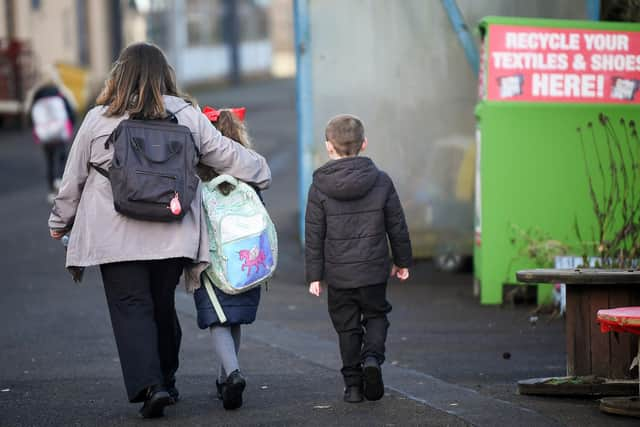Back to school Sheffield: What date do pupils return to the classroom and what will the new rules be?
and live on Freeview channel 276
The last couple of academic years have been very different, with the Covid-19 pandemic causing severe disruption to education and a whole host of new measures introduced to keep pupils, staff and their families safe.
Schools were closed for a large chunk of last year and exams were cancelled for two years in a row, replaced by teacher assessments.
Advertisement
Hide AdAdvertisement
Hide AdBut when do pupils go back to school after summer and what will it be like when they return? Here’s everything you need to know.


When do schools go back in Sheffield?
Sheffield City Council is the local authority responsible for setting the calendar for the school year. It has set Thursday, September 1 as the first date of the 2021/22 term.
However, academies and free schools are allowed to set their own term dates, so it is worth checking with your school to make sure.
Schools are also allowed to choose their own training/inset days and in high schools, some of the return dates may be different for different year groups, to allow new starters to get settled in.
Advertisement
Hide AdAdvertisement
Hide AdThe exact date should be available from your school’s website.
However, an announcement this week said that pupils’ return to schools in England in September is set to be delayed again due to Covid-19 testing.
The first week of the autumn term is due to be spent carrying out tests for coronavirus, with all secondary school pupils required to take two tests on returning to classrooms next month.
The testing requirements are set to take up the whole of the first week of term to carry out, meaning millions of pupils face missing more days of school as a result of the pandemic.
Advertisement
Hide AdAdvertisement
Hide AdIt is expected that most schools will not begin lessons until the second week.
What will the new rules be?
Children will no longer be required to stay in “bubbles” – where they are only allowed to stay in the same groups at school – and there will no longer be a need for staggered drop-off and pick-up times. Pupils will also be allowed to mix at lunchtime.
Wearing a mask or face covering is no longer advised for staff or pupils in school, but it is still being recommended to wear one in busy or crowded areas, for example school buses.
Pupils and staff at high schools are being asked to continue taking lateral flow or rapid self-tests from a week before the start of term. The first week of the new term will be spent testing students for Covid-19.
Advertisement
Hide AdAdvertisement
Hide AdAny pupil who tests positive will be contacted by NHS Test and Trace and told to isolate. They will have to provide names and contact details of anyone they have been in close contact with.
Those who are named as close contacts will be asked to take a PCR test, but will not have to self-isolate unless they test positive.
Current advice on testing is set to be reviewed at the end of September.
Will exams go ahead next year?
GCSE and A Level exams are expected to go ahead next year although full details are still needed about how this will work. Students are expected to be told about some of the topics that will come up in a bid to make it fairer.
Advertisement
Hide AdAdvertisement
Hide AdIt is estimated that pupils have missed around a third of schooling since the beginning of the pandemic. The Department for Education has pledged £1.4bn to help children catch up on what they have missed, although this figure has been criticised by some education bodies and unions who do not believe it is enough.
Comment Guidelines
National World encourages reader discussion on our stories. User feedback, insights and back-and-forth exchanges add a rich layer of context to reporting. Please review our Community Guidelines before commenting.